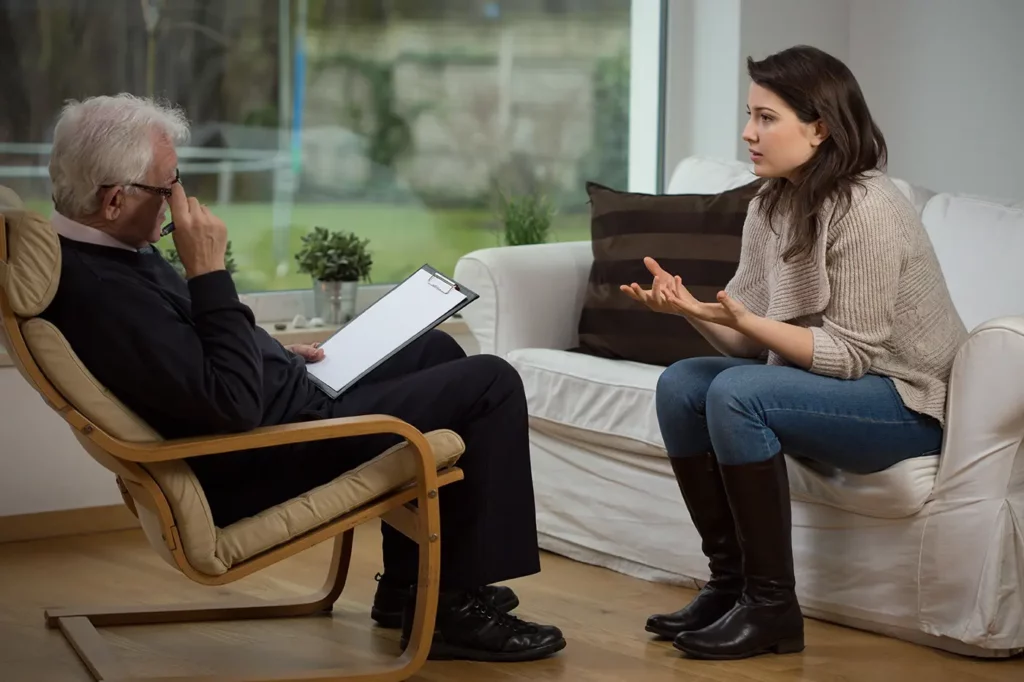24/7 Helpline:
(866) 899-111424/7 Helpline:
(866) 899-1114
Learn more about Klonopin Rehab centers in Highland
Klonopin Rehab in Other Cities

Other Insurance Options

Ceridian

WellCare Health Plans

PHCS Network

Optum

Sliding scale payment assistance

Amerigroup

Optima

CareSource

AllWell

Evernorth

Meritain

Cigna

WellPoint

Multiplan

MVP Healthcare

Anthem

Holman Group

CareFirst

Coventry Health Care

Group Health Incorporated





Gateway Regional Medical Center – Behavioral Health Services
Gateway Regional Medical Center for Behavioral Health Services is a private drug and alcohol rehab l...

Alcoholic Rehabilitation Community Home – ARCH
Alcoholic Rehabilitation Community Home (ARCH) provides extended residential treatment for those men...

Southern Illinois Treatment Center (SITC)
Southern Illinois Treatment Center (SITC) is a private rehab located in Wood River, Illinois. Southe...

Saint Francis Hospital – Behavioral Health Services
Saint Francis Hospital – Behavioral Health Services is a private rehab located in Maryville, Missour...

Helen Ross McNabb Center – Blount County
Helen Ross McNabb Center is an adult addiction treatment center in Maryville, Tennessee. They provid...













































Behavioral Health Alternatives
Behavioral Health Alternatives is a public rehab located in Wood River, Illinois. Behavioral Health ...

WellSpring Resources
WellSpring Resources is a private rehab located in Godfrey, Illinois. WellSpring Resources specializ...

Chestnut Health Systems
Chestnut Health Systems provides inpatient and outpatient services for individuals with substance ad...

AA – Alcoholics Anonymous
AA – Alcoholics Anonymous is a non-profit rehab located in South Roxana, Illinois. AA – Alcoholics A...

Chestnut Health Systems – Mainstay Center
Chestnut Health Systems - Mainstay Center provides clinical support and case management. Chestnut He...

Chestnut Health Systems – Granite City
Chestnut Health Systems provides outpatient services for individuals with substance addiction. The p...

Chestnut Health Systems – Pontoon Beach Support Housing
Chestnut Health Systems - Pontoon Beach Support Housing provides clinical support and case managemen...

Vanguard Dui Services
Vanguard Dui Services is a private rehab located in Wood River, Illinois. Vanguard Dui Services spec...

Rising Phoenix
Rising Phoenix is a private rehab located in Maryville, Missouri. Rising Phoenix specializes in the ...

Family Guidance Center – Maryville
Family Guidance Center – Maryville is a private rehab located in Maryville, Missouri. Family Guidanc...

New Beginning Counseling Center
New Beginning Counseling Center is a private rehab located in Maryville, Missouri. New Beginning Cou...

Appalachian Therapy Center
Appalachian Therapy Center is a private rehab located in Maryville, Tennessee. Appalachian Therapy C...

Peninsula Behavioral Health – Outpatient
Peninsula Behavioral Health – Outpatient is a private rehab located in Maryville, Tennessee. Peninsu...

Psychological and Counseling Services
Psychological and Counseling Services is a private rehab located in Maryville, TN. Psychological and...

Hallmark Rehabilitation Services
Hallmark Rehabilitation Services is a private rehab located in Maryville, Tennessee. Hallmark Rehabi...

Helen Ross McNabb Center – Blount County Community Enrichment Annex
Helen Ross McNabb Center - Blount County Community Enrichment Annex is located in Maryville, Tenness...



















































































































































































































